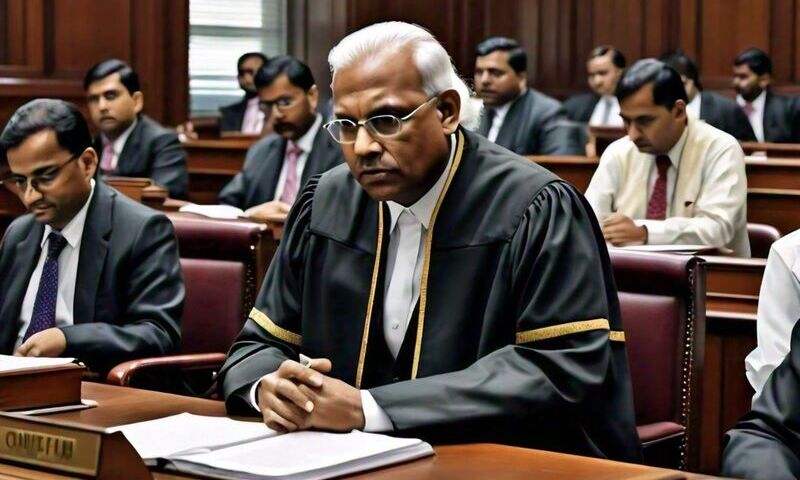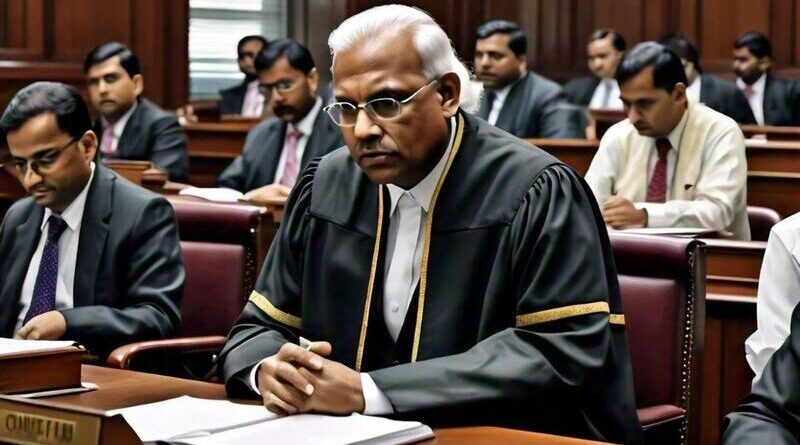Govt Withdraws Advocates Amendment Bill After Protests by Lawyers

Govt Withdraws Advocates Amendment Bill After Protests by Lawyers
Since most advocates in India are uneducated, they do not want to gain new skills and prefer to work in a rotten environment.
By Rakesh Raman
The Law and Justice Ministry of the Government of India has decided to withdraw the draft Advocates (Amendment) Bill, 2025 published on the Department of Legal Affairs website on February 13. The Ministry, in fact, succumbed to lawyers’ protests and objections to the Bill by the Bar Council of India (BCI).
The government said on February 22 that the proposed legislation will be processed again after consultation with different stakeholders and the public. “Considering the number of suggestions and concerns received, it has been decided to conclude the consultation process now. Based on the feedback received, the draft Bill, as revised, will be processed afresh for consultation with stakeholders,” a statement from the government declared.
Although the draft Bill was open for public consultation until February 28, the government withdrew it beforehand as BCI and groups of lawyers raised serious objections to it. The Bill proposed to nominate up to three members to BCI, issue directions to BCI for making regulations for foreign law firms, and expand the definition of legal practitioner to include lawyers working with foreign law firms and corporate entities.
The draft amendment also introduced a new section which prohibited advocates or association of advocates to give a call for boycotts or abstention from courts’ work which may cause obstruction in the court’s functioning. The new Bill proposed to amend the Advocates Act, 1961 so that the legal profession could address the contemporary challenges and lawyers could gain sufficient knowledge to operate in the modern information-driven world.
But Indian lawyers resist any positive change. Since most advocates in India are uneducated, they do not want to gain new skills and prefer to work in a rotten environment. Today, many advocates practice in courts with fake degrees. Although the degrees and certificates of judges can also be fake, the judicial authorities take action only against quack advocates.
In 2023, the Supreme Court ordered to form a committee under a former Justice Deepak Gupta to oversee the verification process of law-practice certificates and educational degrees of over 25 lakh lawyers in the country. The top court observed that the verification is required to streamline the administration of justice. However, even after a couple of years, the lawyers with fake qualifications have not been identified and removed from the system.
Reports quote the findings of the Bar Council of India (BCI) to reveal that 30% of all lawyers in India are fake, holding fraudulent law degrees. As a result, such unqualified lawyers provide only template-based routine services to uneducated clients and fail to handle the cases which require professional acumen.
Today, over 2 million (20 lakh) advocates operate in different courts of India. But the majority of them are not properly qualified to handle court cases. They lack language skills, soft skills, presentation skills, and also lack knowledge of law.
Since judges are also not quite competent, the entire judicial system is plagued with reserved decisions, order delays, random judgments, and wrong verdicts. Consequently, about 5 crore (50 million) cases are now pending in various Indian courts. Out of these, nearly 70,000 cases are pending in the Supreme Court, about 60 lakh (6 million) cases are pending in high courts, and others are in the lower courts.
While lawyers do not understand the content subtleties and their writing skills are pathetic, they write loose English in the court documents such as petitions and responses that cover reams of papers. The judges are equally unskilled as they do not read papers submitted in courts and most judgments are based on crude verbal arguments presented in courts.
As the Indian judiciary operates with illiterate lawyers and judges, global reports reveal multiple irregularities in the Indian judicial systems. In the latest 2023 Rule of Law Index of the World Justice Project (WJP), for example, India’s score declined from 0.50 in 2022 to 0.49 in 2023 and India ranked 79th across 142 countries in 2023 while the civil and criminal justice systems in the country are on the verge of collapse. The scores of India have been constantly falling since 2015.
The Rule of Law Index also shows that the ranking of even very small and poor countries is better than that of India. For example, Sri Lanka (77), Nepal (71), Indonesia (66), Ghana (61), Jamaica (54), Kuwait (52), and Mauritius (46) perform better on the Index.
The Index takes into account various factors to determine the state of judiciary in a country. These factors include government interference, corruption, fundamental rights of citizens, government transparency, regulatory enforcement, civil justice, and criminal justice.
Despite all these irregularities, the unruly lawyers in India refuse to accept any initiative that aims to reform the decayed judicial system. These facts are described comprehensively in the “India Judicial Research Report 2024: Decline of the Indian Judiciary.” You can click here to download and read the research report.
By Rakesh Raman, who is a national award-winning journalist and social activist. He is the founder of the humanitarian organization RMN Foundation which is working in diverse areas to help the disadvantaged and distressed people in the society.




